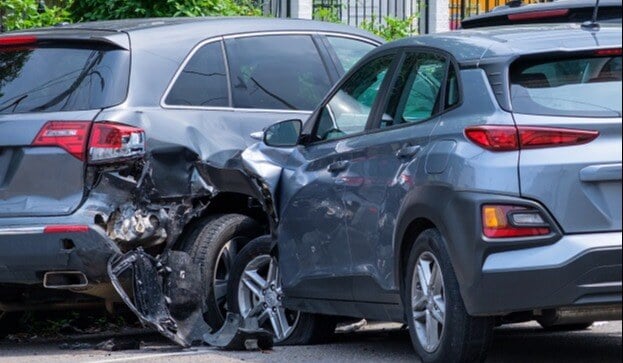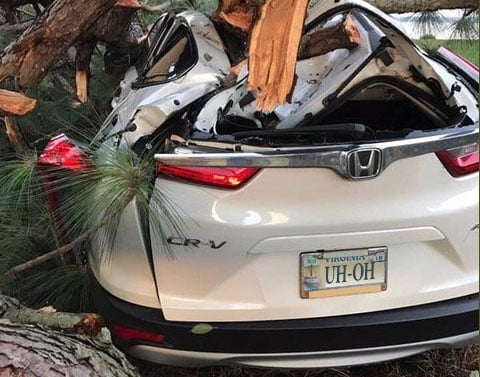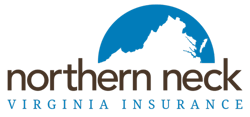
When you have a car crash, all kinds of damage can happen to your vehicle. When minor, major, or major- major damage impacts your car, your collision insurance can financially protect you. A car is totaled when the cost to repair the damage using your collision insurance exceeds its market value, called the " total loss threshold".
After you have filed your insurance claim, your insurance carrier calculates the vehicle’s actual cash value immediately before the crash and compares it to an estimate of the amount of damage to determine if the car is a total loss. If the repairs cost less than what the car is worth, then your insurance company pays to repair it minus your deductible. If the repairs will cost more than the car's value, your insurance company reimburses you for the actual cash value (ACV) of the car minus your deductible, not the total cost of the repairs.
In Virginia, the total loss threshold is 75%. This percentage is how much of the vehicle’s actual cash value the repairs need to cost for the vehicle to be declared a total loss and does not include the car's salvage value. Some states include the car's salvage value in the equation, called the total loss formula (TLF).
Commonly asked questions
What if your car was totaled when it was being driven by a friend? Or what if your car is totaled and you are still paying on a loan? Maybe your car is totaled, but you can still drive it. There are a variety of scenarios that may be your situation. Let's try to cover them!
What to do if your car is totaled without insurance
If you don't have collision insurance and you're at fault for a crash, your best option may be to salvage your totaled car. You can get some money in its current state to put towards a replacement.
What happens if your car is totaled and you have gap insurance?
Gap insurance is different than full car insurance coverage and comes in handy when your car is totaled and you still owe on a loan. Cars lose their value over time. This is called depreciation in the insurance world. If your car is worth less than you owe on your loan or a leasing contract and you have a bad crash, collision car insurance covers the cost to repair or replace your car if you're at fault up to its depreciated value, potentially creating a gap in coverage. When the cost to repair or replace it exceeds its value, you get stuck with paying the difference between what you still owe on your contract and what the car is actually worth today.
You can add the gap coverage to your existing car insurance for about $15 to $40 per year. Buying gap insurance directly from your insurance company is usually the cheapest option.
What to do when your car is totaled and you still owe money
If you do not have gap insurance, your car is totaled, and you still owe money on the loan, the insurance company will pay your lender for the car’s value. You are responsible for any remaining balance if the payout is less than the loan balance. You should continue to make payments to fulfill your obligation and ensure your credit is not negatively impacted.
What happens when your car is totaled but still drivable?
If your car is totaled and your insurance company pays you for the actual cash value of that car, they own the car, and you are required to register it as salvage. This includes applying to DMV for a salvage certificate within a certain amount of time. A vehicle with an active salvage certificate cannot be registered or operated on highways in Virginia.
If your car is still drivable, you may try to negotiate a smaller payout from your insurer and repair it yourself. Your current insurer may not agree to insure the car, so you may need to find liability insurance elsewhere.
What happens if someone else driving your car totals it?
In Virginia, car insurance follows the car, not the driver. If a crash occurs and your car is totaled, your collision insurance pays, but only if the person had your express permission to drive it, according to Virginia law § 38.2-2204. Express permission includes a precise driving area, such as to work and back. When you give consent for someone not listed on your policy, do so carefully and only with specific permission limitations.
If your friend borrows your car with permission and is involved in a crash that is not their fault, the at-fault driver's insurance is responsible.
What happens when your car is totaled by someone else?
If the crash was the other driver's fault, their property liability car insurance will reimburse you for the value of your car even if you don’t have collision insurance. They also have policy limits, so if your car's value exceeds those limits, you will have to file an uninsured/underinsured motorist coverage claim. The only other option is to sue the other driver or pay for the difference in cost out of your own pocket.

What happens when your car is totaled by tree or animal damage?
Cars can be totaled from damage that doesn't involve another driver, like an animal collision, and weather-related damage, like hail or flood damage. These incidents are outside of a policyholder’s control or things that cannot be predicted or prevented. In these cases, you will need additional coverage separate from collision and liability insurance, called comprehensive car insurance. Although this coverage is not legally required in Virginia, it's added protection and also may be required by your lender or leasing agent. Comprehensive car insurance will cover your car's actual cash value (ACV) minus your chosen deductible amount when it's totaled.
Having comprehensive car insurance in addition to liability and collision car insurance is referred to as "full coverage car insurance".
These are things that are not covered by comprehensive car insurance, even if they total your car.
- A car’s normal wear and tear
- Hitting stationary objects like a house, fence, or telephone pole
- Damage from the road, such as potholes
- Damage from animals to the interior of your car, such as chewed wiring
It's important to understand your options in the event that your car from totaled in a collision or from something else. Talk to your local insurance expert about which coverages make sense for you and your situation and have peace of mind if the worst happens.
THE NORTHERN NECK INSURANCE INTEGRITY PROMISE — We pledge to provide straight talk and good counsel from our NNINS Virginia insurance experts through our blog. While we hope you find this to be a helpful source of information, it does not replace the guidance of a licensed insurance professional, nor does it modify the terms of your Northern Neck Insurance policy in any way. All insurance products are governed by the terms in the applicable insurance policy.

